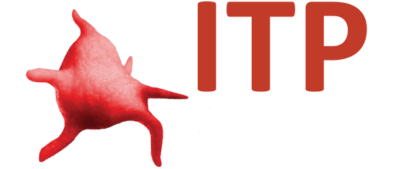The International Society on Thrombosis and Haemostasis (ISTH) 2024 Congress, held in the vibrant city of Bangkok, Thailand, was a landmark event in the field of haematology.
This annual gathering, known for its dedication to advancing the understanding, prevention, diagnosis, and treatment of thrombotic and bleeding disorders, brought together experts worldwide to share their latest research findings, clinical practices, and technological innovations.
ISTH 2024 stood out as a beacon of international collaboration. Unlike many other haematology events, which often have a generalised haematological focus, ISTH’s global scope and inclusive approach were evident in the diverse attendance and the breadth of research specific to thrombosis and haemostasis diseases. Scientists, clinicians, healthcare professionals and patient advocates from over 100 countries participated, fostering an environment of shared knowledge and cross-border cooperation.
Immune Thrombocytopenia (ITP) Takes Centre Stage
One of the highlights of ISTH 2024 was the extensive focus on Immune Thrombocytopenia (ITP). ITP is an autoimmune disorder characterised by low platelet counts, leading to increased bleeding and bruising. This condition has long been a subject of intense study, and the congress featured over 40 abstracts dedicated to this topic, allowing for in-depth discussions and hands-on learning. The poster sessions were a testament to the global research community’s dedication to ITP by researchers from various institutions who presented their findings.
Session ‘Advancements in Modern ITP’ co-chaired by ITP Australia and New Zealand’s Medical Advisors Philip Choi and Cindy Neunert, was a particularly impactful presentation given by Alice Hart from Imperial College London, who delved into the neurocognitive and psychological impacts of ITP on patients. Her presentation, “Neurocognitive and Psychological Impacts in ITP Patients,” highlighted the often-overlooked aspects of living with ITP. Hart’s research revealed that many ITP patients experience significant cognitive impairments and psychological distress, including anxiety and depression, which severely affect their quality of life. She called for a more holistic approach to ITP treatment that includes psychological support and cognitive therapies to address these critical issues.
Waleed Ghanima from Norway presented “Adult ITP: Changing the Natural History in the 21st Century,” offering a comprehensive review of how the understanding and treatment of adult ITP have evolved. Ghanima highlighted the improvements in patient outcomes due to advances in diagnostics and personalised treatment strategies, underscoring the transformative impact of contemporary research and clinical practices.
Presentations from David Kuter, Cindy Neunert and Waleed Ghanima at the supported symposium ‘The ITP Treatment Landscape’ spoke of the key clinical concerns when choosing a treatment, how to navigate patient concerns with clinical outcomes and how emerging treatments can help to fill the current therapy gaps when treating ITP.
 Late-breaking Session
Late-breaking Session
David Kuter presented a late-breaking session that included the preliminary results and efficacy of mezagiltamab, a new monoclonal antibody showing promise in treating ITP. This presentation provided interim clinical trial data demonstrating how the emerging therapy might increase platelet counts in patients with refractory ITP, suggesting it may be a significant advancement in potential therapeutic options.
The Scientific and Standardization Committee for Platelet Immunology
A significant component of ISTH 2024 was the work conducted by the Scientific and Standardization Committee (SSC) for Platelet Immunology. The SSC sessions provided a platform for experts to discuss the latest advancements in the standardisation of platelet immunology assays and the development of guidelines for diagnosing and managing ITP.
Nicola Cooper from the United Kingdom presented on the T cell pathophysiology in ITP, a critical area of research that is beginning to unravel the complex immune interactions involved in the disorder. Cooper’s work has illuminated the role of T cells in the autoimmune response, paving the way for new therapeutic targets.
Another noteworthy presentation by Michele Lambert, “Heavy Menstrual Bleeding in Immune Thrombocytopenia,” shed light on a critical yet often overlooked aspect of ITP. Lambert highlighted the significant impact of heavy menstrual bleeding on the quality of life of female patients with ITP and discussed potential management strategies. Her research underscored the need for heightened awareness and tailored treatments to address this specific complication of ITP, emphasising the importance of multidisciplinary approaches in patient care.
Final Thoughts
One of the key takeaways from ISTH 2024 was the emphasis on building and strengthening collaborative networks. The congress facilitated numerous networking opportunities, allowing researchers and clinicians to connect, share ideas, and establish partnerships. These collaborations are crucial for advancing the field of hematology and improving patient outcomes globally.
This annual event was more than just another congress; it was a celebration of global collaboration and innovation in haematology. The extensive focus on Immune Thrombocytopenia, with over 40 abstracts presented, highlighted the increasing international research efforts and the collective commitment to improving patients’ lives with this challenging condition.
The success of ISTH 2024 underscored the importance of global cooperation in scientific research and set a high standard for future congresses in the field.
Header Image Source: ISTH 2024





 Late-breaking Session
Late-breaking Session

